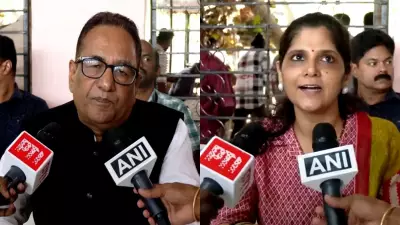
The political landscape in Tamil Nadu has been set ablaze by a controversy surrounding none other than Google CEO Sundar Pichai and his choice of investment location in India. The debate has escalated into a full-blown political confrontation between major parties.
The AIADMK's Accusation
The AIADMK party has launched a sharp criticism against the ruling DMK government, questioning why Sundar Pichai, who hails from Tamil Nadu, chose to invest in Andhra Pradesh instead of his home state. The opposition party pointedly asked what prevented the DMK government from convincing the Google CEO to bring his company's investments to Tamil Nadu.
Nara Lokesh's Strong Rebuttal
Andhra Pradesh Minister Nara Lokesh quickly entered the fray with a powerful response. He emphasized that Sundar Pichai made a conscious decision to choose "Bharat" (India) as a whole, specifically selecting Andhra Pradesh for Google's significant investments. Lokesh's statement positioned the investment as a national achievement rather than a regional competition.
The Core Controversy
At the heart of the political storm lies a fundamental question: Why couldn't Tamil Nadu, despite being the birthplace of one of the world's most influential tech leaders, secure Google's investment? The AIADMK's criticism suggests this represents a significant failure of the DMK government's economic and investment policies.
The controversy highlights the intense competition among Indian states to attract major technology investments and global corporate leaders. It also underscores how the achievements of successful Indian-origin global executives become political talking points in domestic politics.
Broader Implications
This political exchange reflects several important trends in contemporary Indian politics:
- The growing importance of global tech investments in state development agendas
- The political capital associated with successful NRIs and global corporate leaders
- The competitive federalism among Indian states for economic opportunities
- The intersection of technology, business, and regional politics
As the debate continues, it raises larger questions about how Indian states can better leverage their connections with global Indian talent and what policies truly attract major international corporations.





